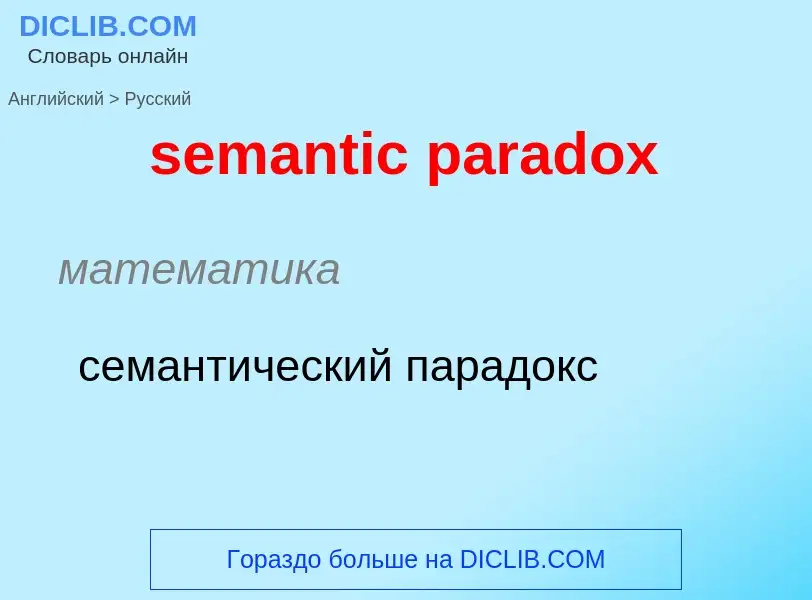Traduction et analyse de mots par intelligence artificielle ChatGPT
Sur cette page, vous pouvez obtenir une analyse détaillée d'un mot ou d'une phrase, réalisée à l'aide de la meilleure technologie d'intelligence artificielle à ce jour:
- comment le mot est utilisé
- fréquence d'utilisation
- il est utilisé plus souvent dans le discours oral ou écrit
- options de traduction de mots
- exemples d'utilisation (plusieurs phrases avec traduction)
- étymologie
semantic paradox - traduction vers russe
математика
семантический парадокс
математика
логический парадокс
общая лексика
парадоксально
Définition
Wikipédia
A paradox is a logically self-contradictory statement or a statement that runs contrary to one's expectation. It is a statement that, despite apparently valid reasoning from true premises, leads to a seemingly self-contradictory or a logically unacceptable conclusion. A paradox usually involves contradictory-yet-interrelated elements that exist simultaneously and persist over time. They result in "persistent contradiction between interdependent elements" leading to a lasting "unity of opposites".
In logic, many paradoxes exist that are known to be invalid arguments, yet are nevertheless valuable in promoting critical thinking, while other paradoxes have revealed errors in definitions that were assumed to be rigorous, and have caused axioms of mathematics and logic to be re-examined. One example is Russell's paradox, which questions whether a "list of all lists that do not contain themselves" would include itself, and showed that attempts to found set theory on the identification of sets with properties or predicates were flawed. Others, such as Curry's paradox, cannot be easily resolved by making foundational changes in a logical system.
Examples outside logic include the ship of Theseus from philosophy, a paradox that questions whether a ship repaired over time by replacing each and all of its wooden parts, one at a time, would remain the same ship. Paradoxes can also take the form of images or other media. For example, M.C. Escher featured perspective-based paradoxes in many of his drawings, with walls that are regarded as floors from other points of view, and staircases that appear to climb endlessly.
In common usage, the word "paradox" often refers to statements that are ironic or unexpected, such as "the paradox that standing is more tiring than walking".

